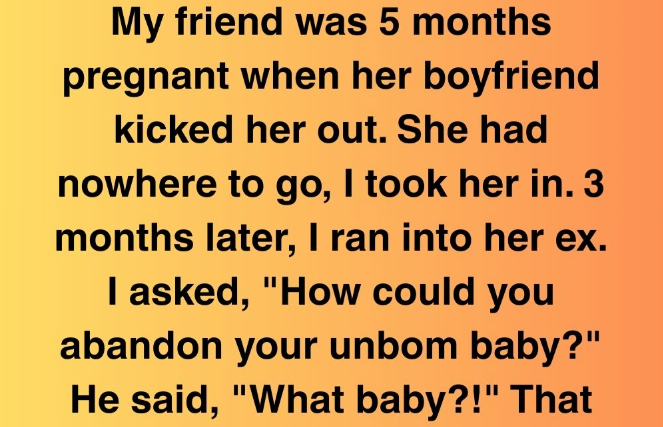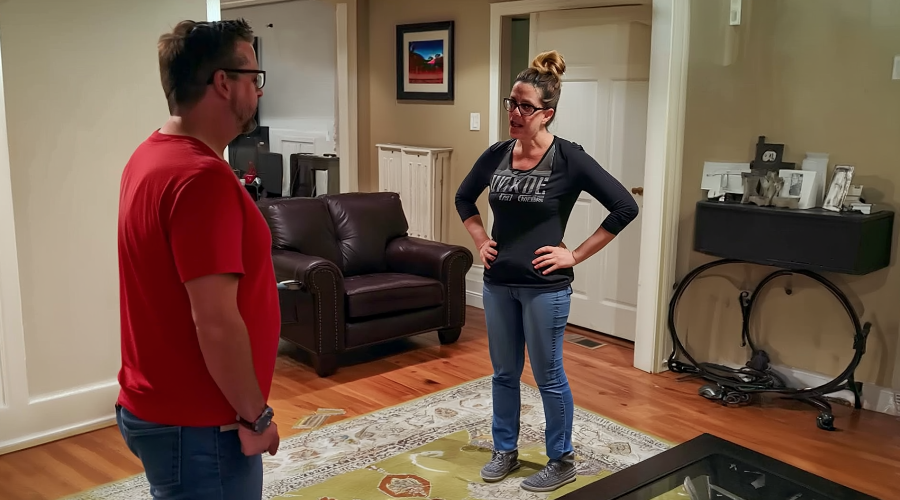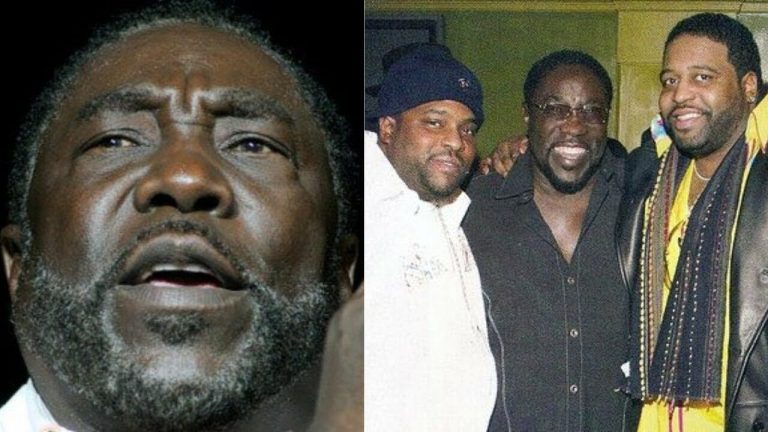When my friend, five months along in her pregnancy, was cast out by her boyfriend, she had no place to turn. I opened my home to her. Three months later, I crossed paths with her ex, Lior. I confronted him, asking, “How could you leave your unborn child behind?” His response stunned me: “What child?” That evening, I chose to investigate. My heart stopped when I saw my friend…
…tucking a pillow beneath her sweater.
She wasn’t even attempting to hide it. In front of the bathroom mirror, she adjusted the pillow as if preparing for a stage performance. I stood frozen in the hallway, my hand lingering on the light switch, barely breathing.
For nearly three months, we had shared my home. I had shopped for her pregnancy cravings, picked up prenatal vitamins, and even driven her to a supposed doctor’s visit—she’d gone in alone, claiming the doctor was “outdated and dismissive.” I trusted her story.
Now, watching her pose with a pillow, my stomach churned.
I slipped back to my room quietly, my mind racing. How could someone fabricate such a thing? For so long?
I didn’t confront her that night. Sleep eluded me. I lay awake, replaying everything—her tearful arrival on my couch, claiming Lior had abandoned her “with a baby and a shattered heart.” The evenings she’d cradled her stomach, whispering to it. The baby names she’d suggested over dinner.
Morning arrived, and she prepared pancakes as if nothing was amiss. I couldn’t stay silent.
“I saw you last night,” I said evenly, sipping my coffee.
She paused, mug halfway to her lips. “Saw me?”
“In the hallway. With the pillow.”
Her expression went blank, like a switch had been flipped. Then her hands began to tremble. “I can explain.”
“You’d better.”
She placed her mug down with a gentle clink, staring at the table.
“Lior ended things, and I… I panicked. I wanted him back. So I told him I was pregnant. He didn’t believe me, but when I posted pictures online showing a bump, people started to believe it. Then you offered me a place to stay. I didn’t know how to back out.”
I stared at her. “You were never pregnant?”
She shook her head, eyes welling up.
It felt like a punch to the chest. Her lies hadn’t only deceived me—they’d pulled in my friends, my family, even my coworkers, who all thought I was helping a pregnant friend in crisis. I’d felt like a hero. Now I felt foolish.
“So the doctor’s visits—those were fake too?” I asked.
She nodded. “I’d sit in a park or a café. I’m so sorry. I didn’t know where else to go. You were so kind.”
“But that kindness was for a mother-to-be. That changes everything.”
I stood, unable to meet her gaze any longer.
“I think you need to start planning your next move. You can’t stay here.”
She nodded, lips tight. “I understand.”
I didn’t raise my voice. I didn’t toss her belongings out. But the week that followed was heavy with tension. She kept to her room, and within four days, she was gone. She left a note on the counter—no grand farewell.
The story didn’t end there, though.
Weeks later, Lior sent me a message on Instagram. “Can we meet? I owe you an explanation.”
We met at a café. He carried a manila envelope.
“After our strange talk,” he said, “I got curious. At first, I didn’t believe her, but her posts about the pregnancy made me wonder if I’d misjudged. So I hired a private investigator.”
My jaw dropped slightly.
“She never visited the OB-GYN she claimed. No prescriptions were filled. Her phone’s GPS showed her at malls and diners during her ‘appointments.’ The investigator even found an Etsy purchase for a fake ultrasound.”
He pushed the envelope toward me. “I thought you should know, in case she tries this again.”
I didn’t open it. I just nodded. “Thank you. She’s already gone.”
He paused. “Did she ever mention Tula?”
“No. Who’s Tula?”
“She had a friend named Tula. They were close. A couple of years ago, Tula lost a pregnancy. My ex was the only one who knew how far along Tula was… and somehow, she posted a ‘pregnancy test’ photo that looked eerily like one Tula had shared privately.”
A shiver ran through me.
He sighed. “You think you’re helping someone, but sometimes they’re only using your generosity as a tool.”
I left the café, my stomach in knots. Who was this person I’d welcomed into my home?
Time passed—weeks, then months. I moved forward, mostly. I shared the truth with a few close friends but otherwise said she’d left “on her own terms.”
Then, one evening, I attended a mutual friend’s party. I didn’t expect to see her.
She walked in, carefree—new haircut, glowing tan, wearing a loose sweater again. My blood chilled.
I tried to slip out unnoticed, but she spotted me and followed me to the sidewalk.
“Please wait,” she said, grabbing my arm. “Can we talk?”
I crossed my arms, saying nothing.
“I’ve been in therapy,” she said quickly. “I know I messed up. I made everything worse trying to hold onto people. You weren’t the first I deceived. But you were the first to call me out and walk away.”
Her eyes seemed sincere, but I’d fallen for that before. It meant nothing without proof.
“I can’t undo what I did,” she said, “but I want to thank you. For taking me in, even if it was under false pretenses. Those months in your home were the first time I felt secure in years.”
I didn’t know how to respond. So I nodded and walked away.
That could have been the end. But life has a way of circling back.
Six months later, I saw a Facebook post from a local women’s shelter seeking volunteers. On a whim, I signed up.
On my second day, folding donated baby clothes, someone called my name.
I turned—and there she was.
No oversized sweater. Just a navy staff shirt with a badge reading “Natal.” Her real name, not the alias she’d used when we met.
She looked different. Unburdened. Still herself, but less guarded.
“You work here?” I asked.
“Yeah. Started volunteering, then they hired me part-time. Turns out, honesty is less exhausting than spinning lies.”
I laughed despite myself. “You always had a sharp sense of humor.”
She smiled. “I’m where I belong now.”
Over the next few weeks, we crossed paths often. We didn’t ignore the past, but we didn’t dwell on it either. Gradually, the resentment faded. She had changed. There was no act in her gaze anymore—just quiet resolve.
One afternoon, after a long shift sorting food donations, she sat beside me on the shelter’s steps.
“I lied to make people stay,” she said abruptly. “But it only pushed the good ones away.”
I nodded. “Sometimes people deserve another chance.”
We sat quietly, watching the sunset paint the sky.
Betrayal doesn’t always arrive with drama. Sometimes it sneaks in, wearing casual clothes and asking for a glass of water.
But what people don’t often say is that some can change if they’re brave enough to confront their flaws. And sometimes, the most broken among us become the greatest helpers.
We’re not best friends again. But we’re both better versions of ourselves.
Would I take her in again, knowing what I know now?
I’d still say yes.
Kindness, even when exploited, sows a seed. You never know when it might grow.
If this story resonated with you, share it with someone who believes in redemption or second chances.




